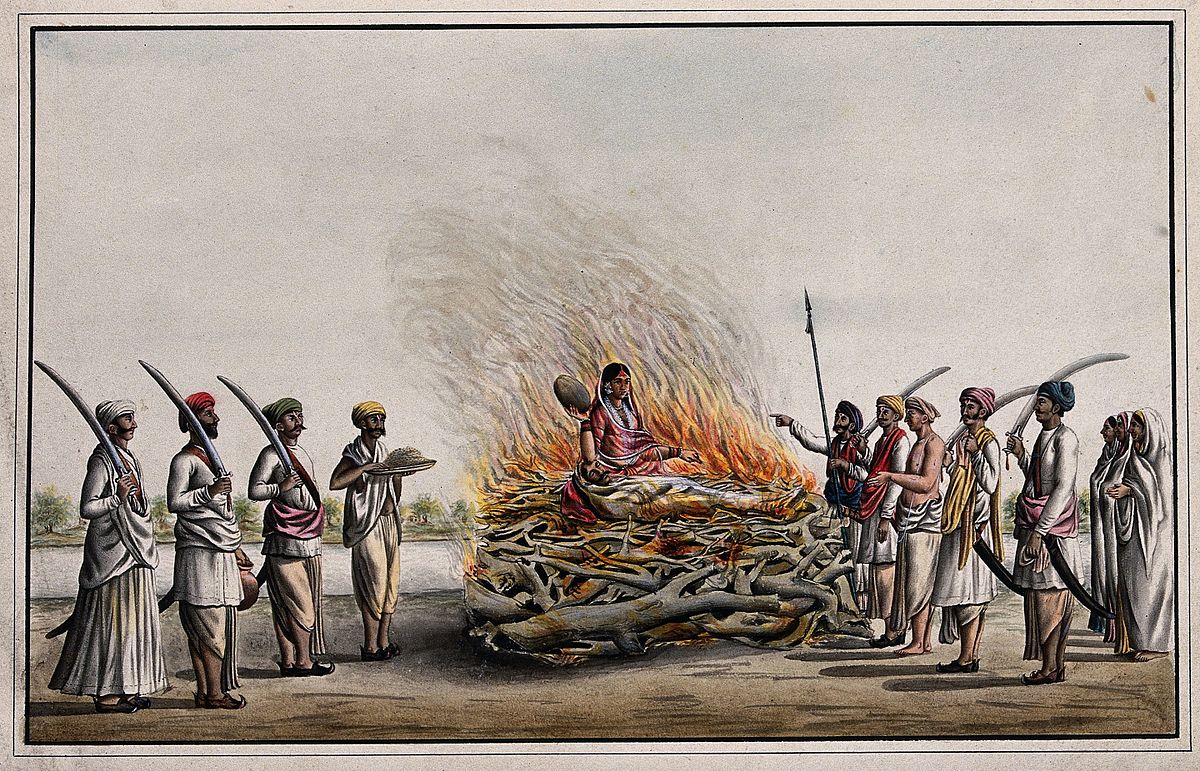Suttee, also called sati, is an Indian custom where a woman sacrifices herself soon after her husband has passed on as a show of devotion to him. It is an ancient practice that dates back as early as 510 CE. There is evidence of suttee stone memorials spread throughout India.
Suttee Origins
The practice is tied to the Hindu goddess Sati, who killed herself after her father humiliated her and her husband. After her death, her husband carried her body across the land. Her body parts dropped and became important pilgrimage sites.
The practice of suttee was originally connected with chaste women who were wholly devoted to their husbands. Widows willingly followed their husbands to the grave in order to show their loyalty and to earn significant karma in the afterlife. These women often left a handprint or footprint behind on a stone as a memorial.
However, the practice slowly shifted to forced suttee for widows who were considered a burden to society. Exceptions were made if the widow was pregnant, had young children or if she was menstruating. Another exception was made for those of the highest social class, as they had nothing to gain in the afterlife by completing such a sacrifice.
Suttee Bans
The campaign against suttee was spearheaded by Christian and Hindu reformers; they collectively agreed that sati was inhumane and was a fate forced on the victim.The first formal British ban on the suttee was imposed in 1798 in Calcutta only. During this time, missionary activity in India was at its peak alongside the campaign to spread Christianity and purge all morally degrading practices. However, despite the ban, there were 438 recorded practices in 1803 in the city. And between 1815-1818, that number jumped to 839.
In 1829, Lord WIlliam Benticnk (the British Governor-General of India at the time) enacted another ban called the Bengal Sati Regulation. The punishment for those who assisted in the practice was losing property and freedom. Despite pushback from those in favor of suttee, the ban passed with support from four of 7 of the Privy Councillors.

